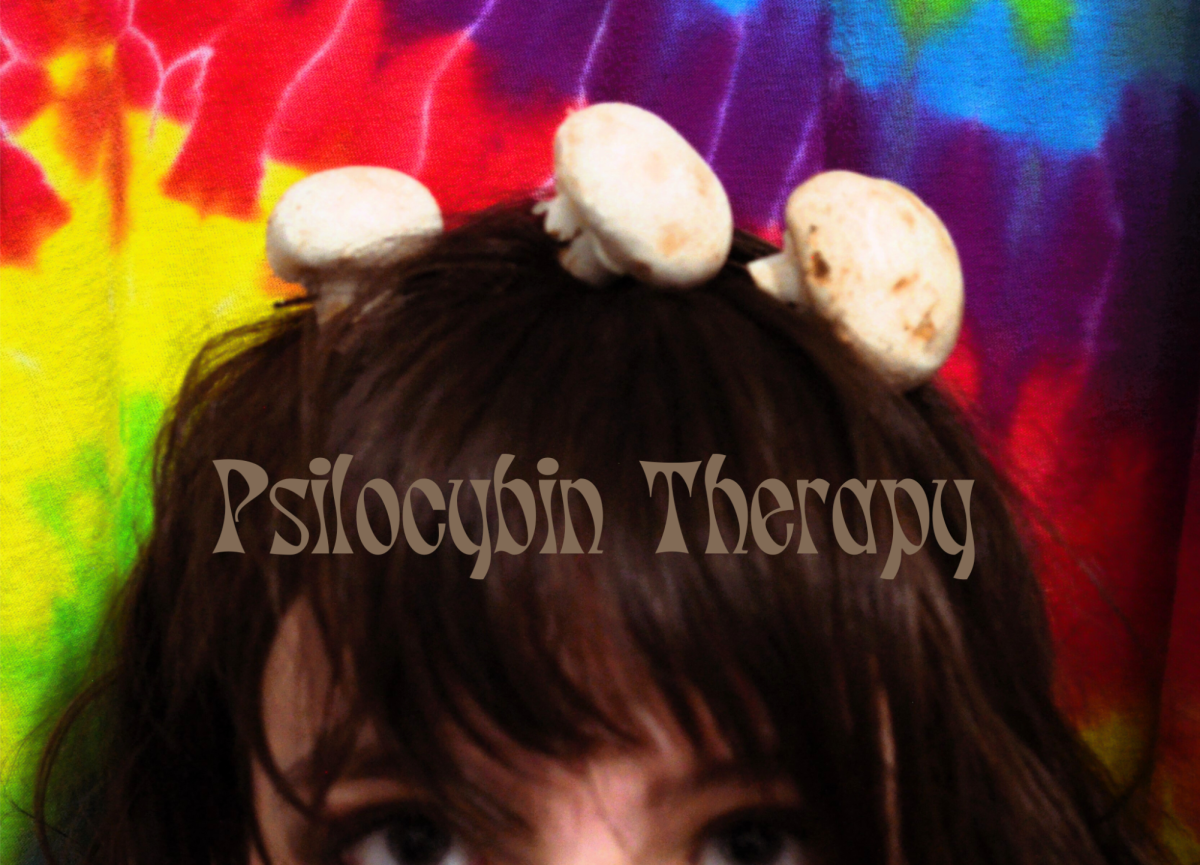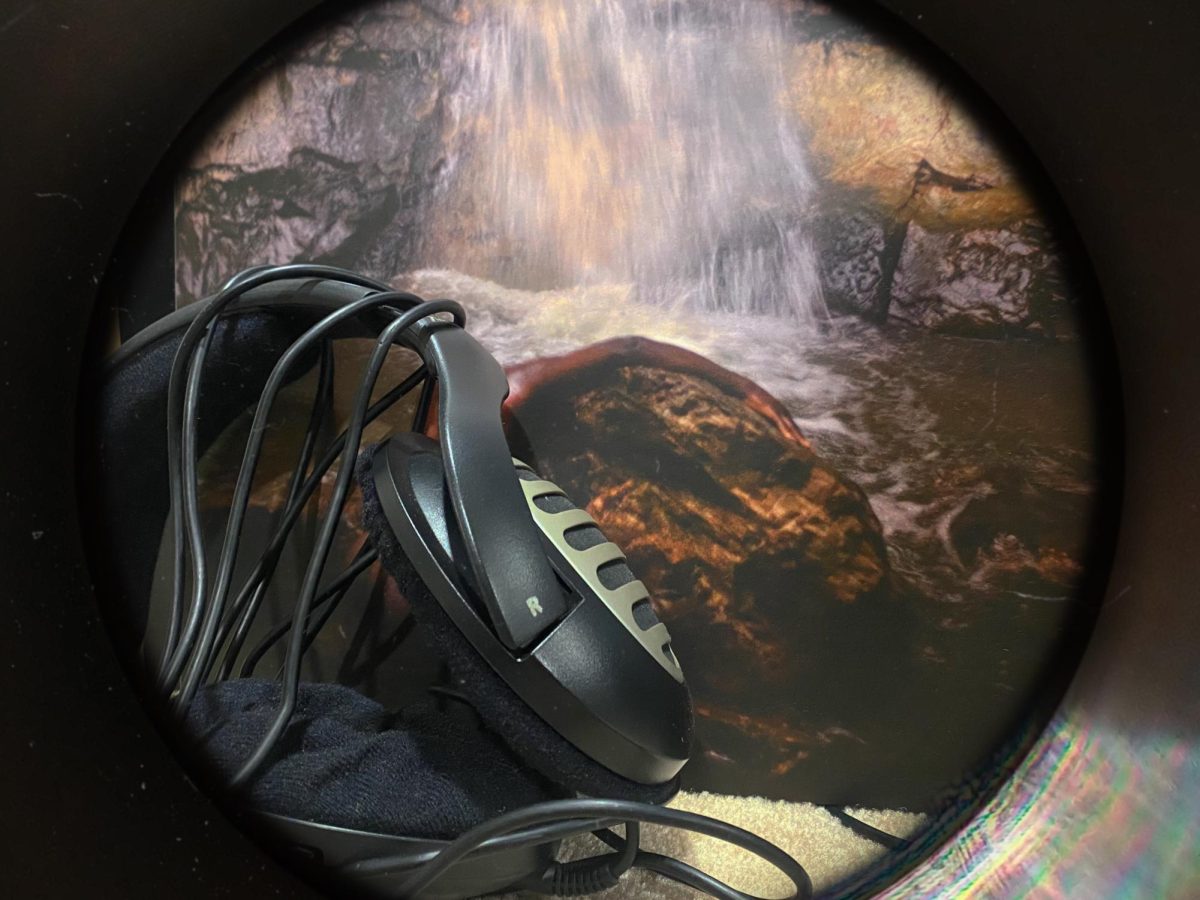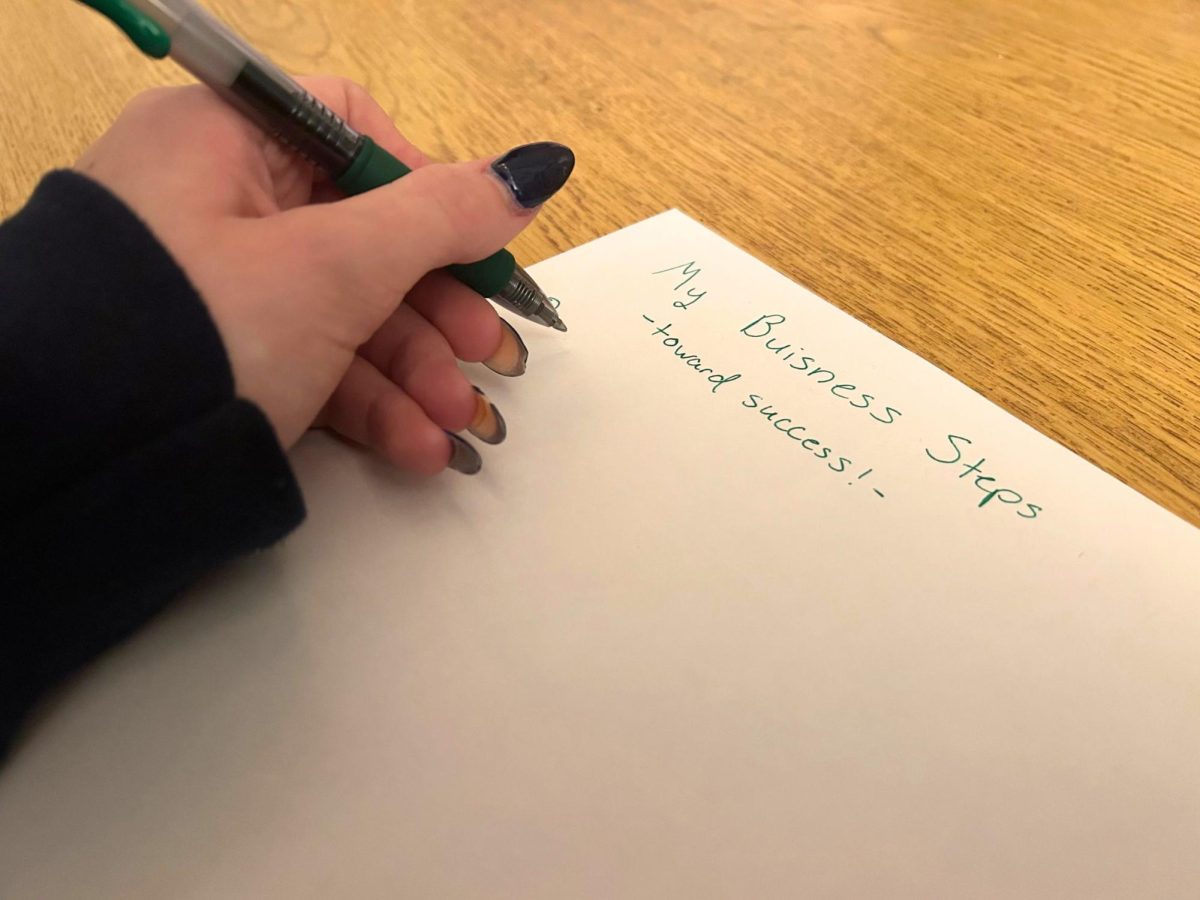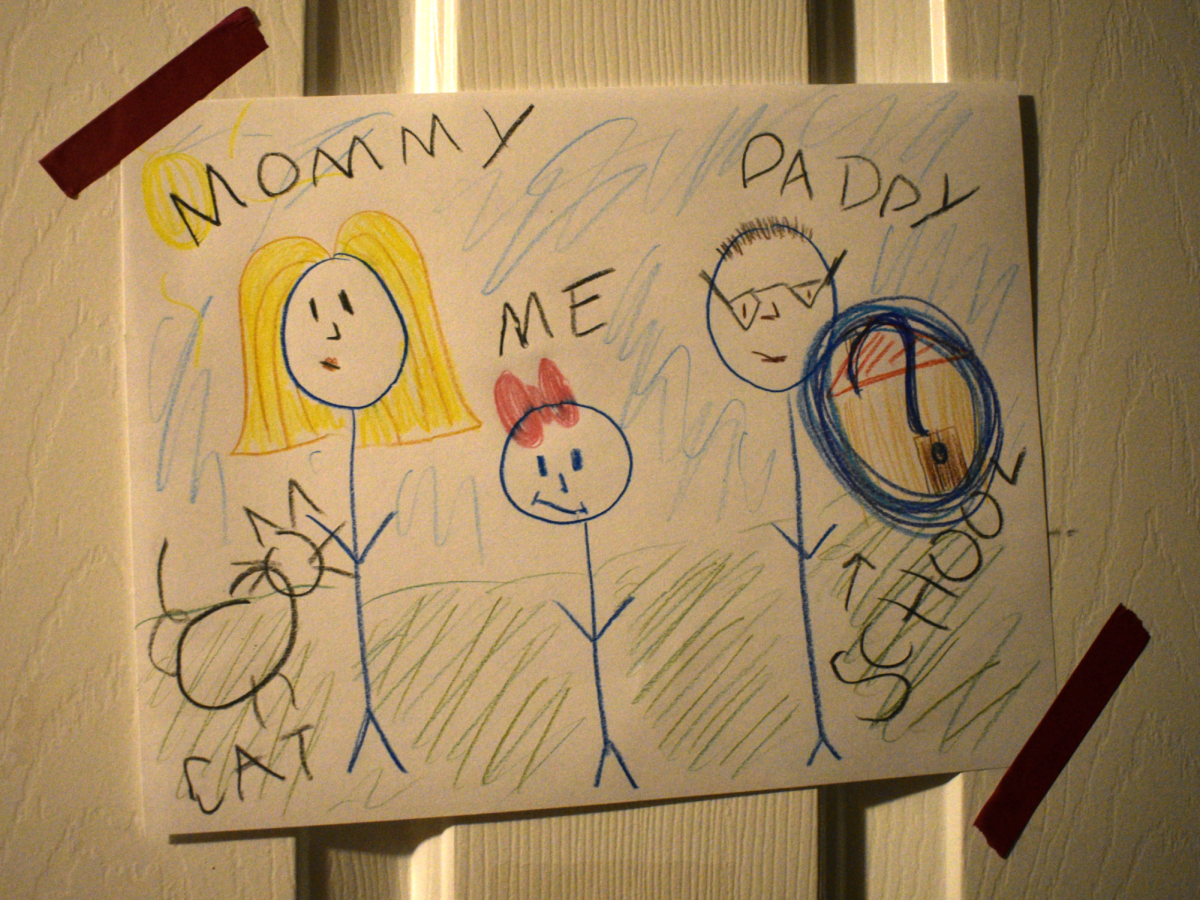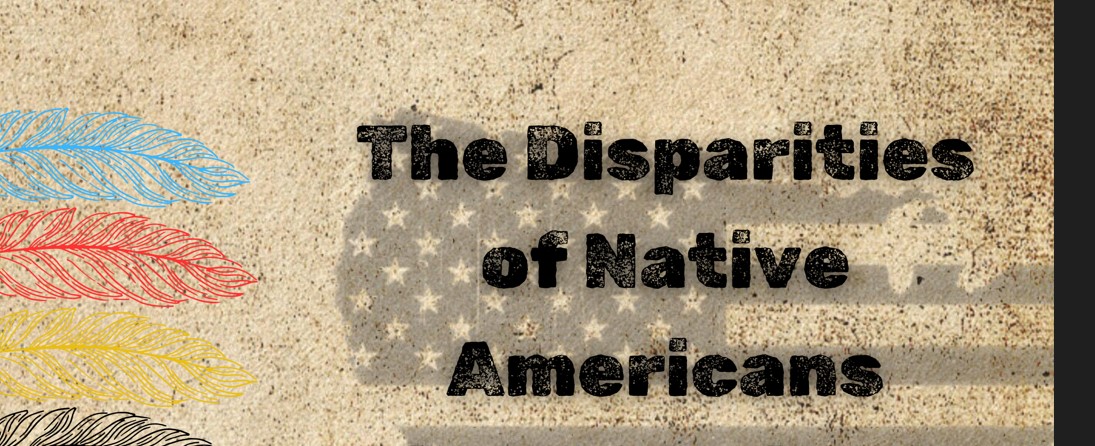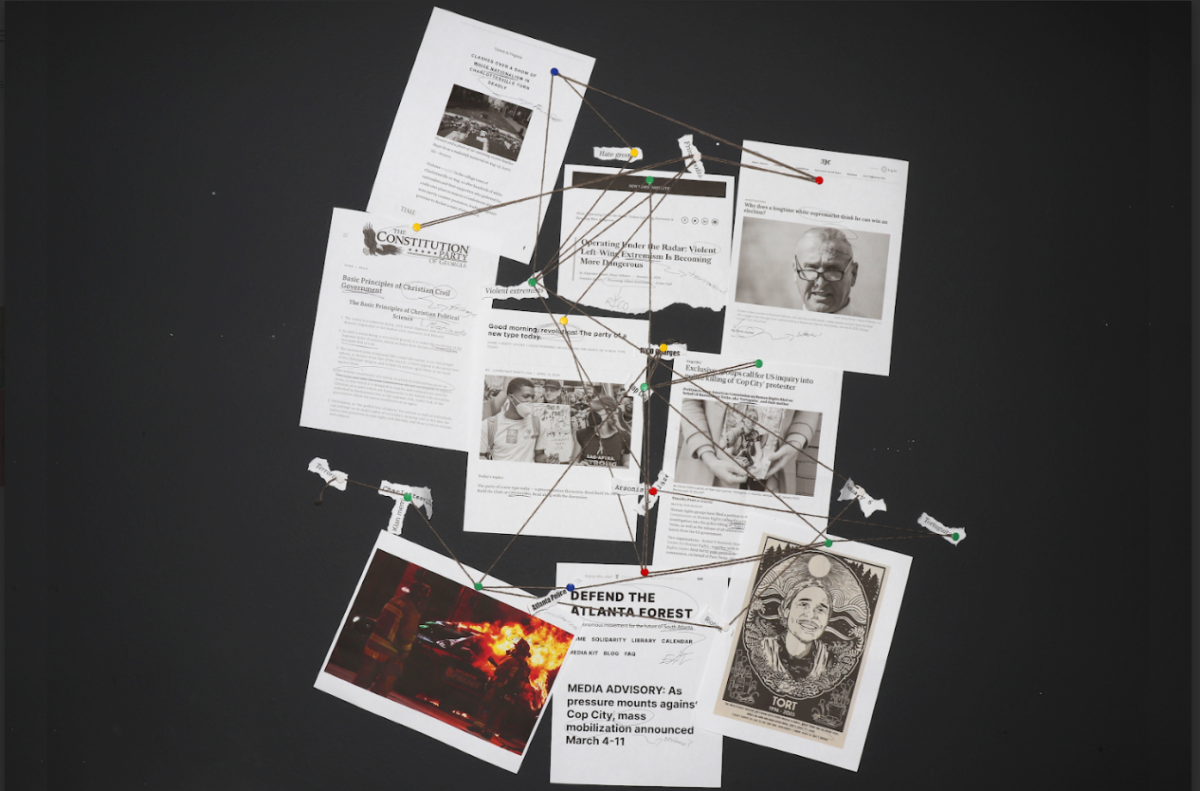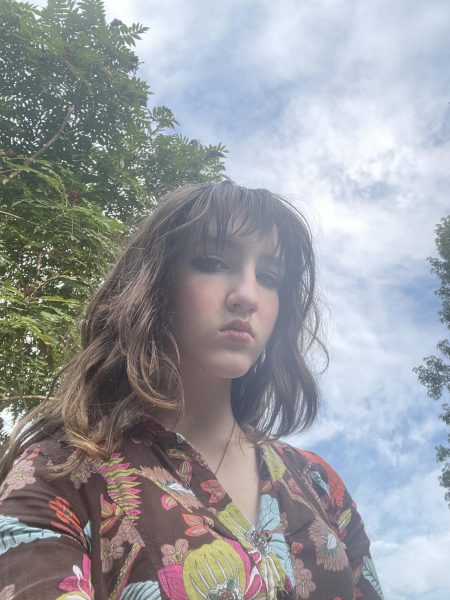The experimentation with various recreational drugs by the hippies during the 60s remains a well-known aspect of the hippies’ counterculture movement. Such persuasions of hippie-revered substances include psychedelic mushrooms, also known as psilocybin mushrooms, enjoyed for their euphoric and sense-distorting qualities. Flower children, however, did not discover the various uses of psilocybin mushrooms; instead, historians track their uses to the Aztecs in Mexico and Central America, among other less thoroughly recorded instances in places such as Spain.
In Aztec tradition, “teōnanācatl,” meaning “divine mushroom,” held various but narrowly-recorded uses, including coronations, celebrations and religious activities. In colonial priest Franciscan de Sahagún’s mid-16th century book, “Historia General de las Cosas de la Nueva España,” Sahagún explains the uses of psychedelics in Aztec culture.
Psychedelic mushrooms contain psilocybin—a hallucinogen that provides certain fungi with its hallucinogenic properties— which activates serotonin receptors in the brain which causes enhanced happiness. Although users will not likely develop addictions according to current understandings of the substance, psychedelic mushrooms can cause hallucinations and vomiting. Historical understanding and stigma led to the belief that psychedelics connect to psychosis when not actively on the drug, but recent studies may disprove the notion.
Today, the use of psychedelics in the United States expanded from illegal recreational use to an experimental medical treatment for various mental illnesses and disorders. This change occurred as the Food and Drug Administration (FDA) began granting breakthrough therapy status to the treatments, meaning psychedelics remain unapproved for public use but researchers may study the medical uses. Extensive research indicates that psilocybin shows promise in treating both mood and substance disorders, including obsessive-compulsive disorder (OCD), depression and anxiety. As the treatment enters clinical trials, it piques both public and professional interest as news and research-oriented websites prominently feature promising experimentation.
“I wouldn’t be surprised [if psilocybin manages mental disorders], considering other drugs have been used to manage mental issues, but psychedelic mushrooms aren’t something I thought would be used to manage mental health. I would be worried because I have heard they can cause hallucinations. I don’t know if I would be comfortable taking it myself, but if a loved one wanted to try it, I wouldn’t necessarily be uncomfortable with it,” junior Monica Goodman said.
Pros of psilocybin therapy
Long-lasting and effective depression treatment
When researchers administered doses of psilocybin in a medical facility, they found the therapy effective in treating depression, including treatment-resistant depression. Studies show that only two microdoses of the drug, administered five weeks apart, eased patient depression symptoms for up to a year.
Emotional effects compared to antidepressants
Selective serotonin reuptake inhibitors (SSRI), a type of antidepressant commonly used to numb emotions in addition to depression symptoms. Currently, evidence shows that psilocybin therapy reduces negative moods while enhancing positive ones, preserving the ability of depressed patients to experience heightened happiness.
May assist in substance abuse recovery
According to emerging data, psilocybin therapy proved effective in aiding recovery from smoking and alcohol addictions. A study conducted by three Johns Hopkins researchers showed that two to three doses of the drug combined with cognitive behavioral therapy (CBT) resulted in higher smoking abstinence rates than other medications or CBT independently. In another study conducted by researchers at the University of New Mexico, patients with alcohol dependence demonstrated decreased cravings and significantly increased abstinence for the duration of the study, 36 weeks after administration.
Cons of psilocybin therapy
Risk of psilocybin
Despite the positives of psilocybin therapy, the drug, like any other, carries risks. These risks include hallucinogen-persisting perception disorder, weakness, issues with muscular coordination, dissociation and hallucinations. Although, when administered by professionals, the risk carried by doses of psilocybin diminishes significantly; the approval of the drug may encourage people to self-medicate with psychedelic mushrooms or other psychedelic drugs. Other psychedelic drugs include Lysergic acid diethylamide (LSD) and Peyote, which currently do not carry the same medical potential. In this case, people may take incorrect dosages, or users could accidentally ingest a poisonous mushroom because it resembles psychedelic ones.
Legality in the United States
Presently, only one state, Oregon, has legalized psilocybin. If the FDA approves psilocybin therapy, legality would still hinder Americans’ ability to receive the treatment. Currently, another controlled substance, cannabis, serves medicinal purposes legally in the majority of the US. However, in states such as Idaho and Kansas, with laws that fully outlaw cannabis, potential patients may not use the substance medicinally. Should the FDA approve psilocybin therapy, the majority of states, with their respective bans on the substance, would still obstruct medical use.
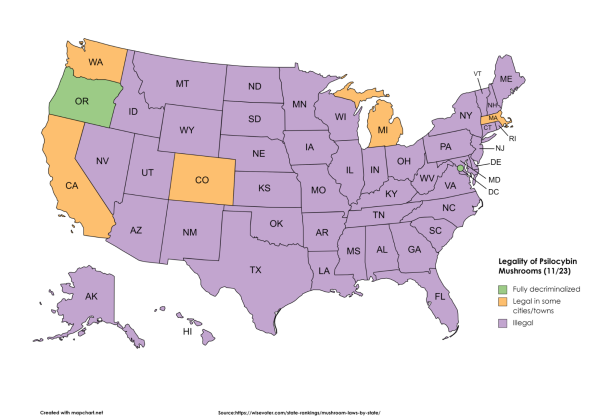
“I honestly believe that this could really help a lot of people. But the side effects that can occur worry me a lot considering what I have heard about psychedelic mushrooms before. I worry about how it might affect people if they use them for a long time. Will people get addicted or will the effects just wear out? Overall, it’s an interesting topic and something I might look more into later on,” Goodman said.








